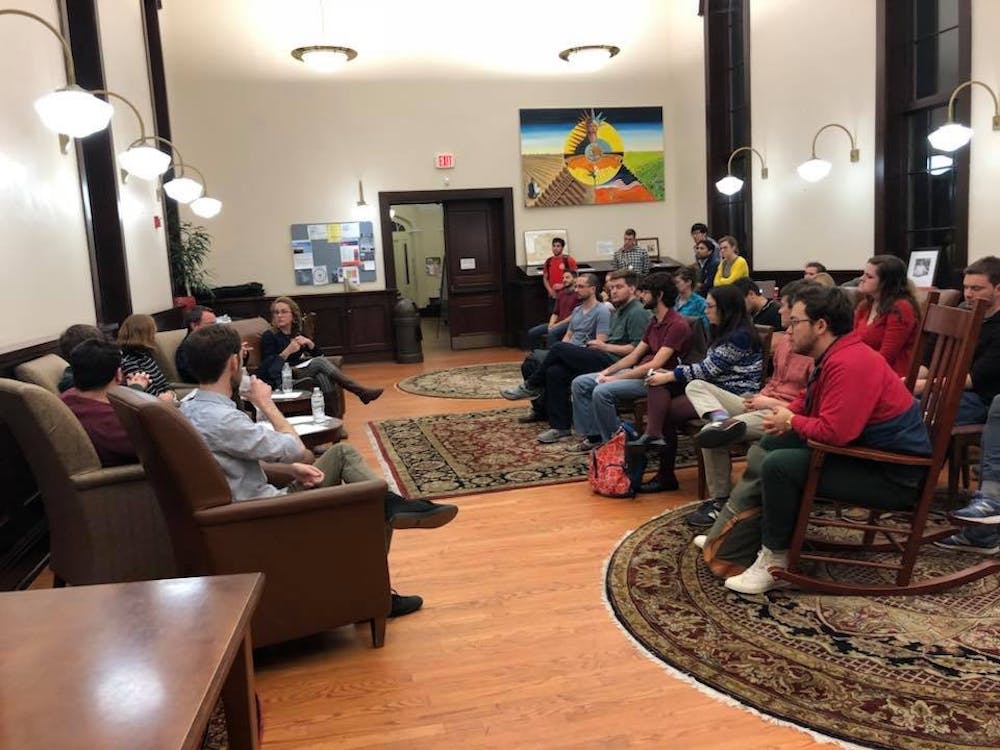UNC graduate students spoke out against the proposed U.S. House of Representatives' tax plan Friday in a panel hosted by the Carolina Young Democratic Socialists and the Workers Union at UNC.
The House tax bill, passed Nov. 16, could have negative implications for graduate students in particular. The U.S. Senate passed a separate tax bill Saturday morning with a 51-49 Republican majority. The two must be reconciled to become law.
The panel, which was held in the Campus Y, consisted of four doctorate students — Dave Leather, Eli Locicero, Keith Penich and Madelyn Percy — as well as Thomas Lester, a city and regional planning professor who specializes in economic development.
Carolina Young Democratic Socialist member Kyra Exterovich-Rubin, a junior double majoring in public policy and philosophy, moderated the panel.
“We felt this was really important because this is the first time the tax code has been altered by Congress in 30 years, and it affects grad students and Americans so much,” she said.
Ellie Rodriguez, a junior English major and member of the Carolina Young Democratic Socialists, said she proposed the idea for the panel about two weeks ago.
"It was just like sending emails all the time," she said. "Talking to professors one-on-one, reserving the room, making the Facebook event. The payoff was tremendous.”
The panel discussion lasted for about an hour and first covered what the House tax bill is and how it would affect everyone if passed. The event then moved into the specific implications for graduate students and higher education. The panelists emphasized the importance of activist work in universities, including that of undergraduates, to prevent the bill from passing.
According to the panelists, under the current tax code, graduate students do not pay taxes on tuition waivers they receive in exchange for teaching classes and conducting research.



